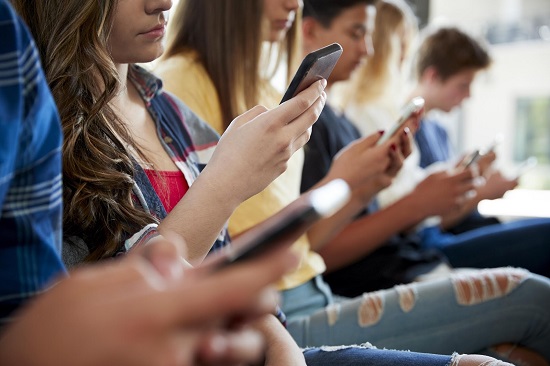Social media has completely changed the way people interact with each other, and while it has brought a lot of good to the world, it can also cause issues. Many parents and guardians worry about the effects that social media has on their teenagers, so here are some of the things they should look out for.
Social Media Offers a Distorted Image of the World
One of the things that can have a big impact on teenagers is seeing the distorted images that come from social media. While adults will usually understand that images on social media are heavily staged and photo shopped, it’s easy for teenagers to feel like they aren’t thin enough, don’t have the right clothes or don’t have a life that’s as exciting as their favorite influencers. Because of this, social media has been shown to contribute to eating disorders and other psychological problems.
If your teenager spends a lot of time on social media, you should discuss with them how the images they see aren’t real and how they can easily be staged, just like the images in any glossy magazine.
Social Media Can Lead to Cyberbullying
Social media can help teenagers stay in touch with friends, but unfortunately, this ease of communication and the potential for anonymity means that many platforms have issues with bullying. Around 37% of young people aged 12-17 said they had been bullied online, often more than once, with girls more likely to be both victims and perpetrators.
There are some ways parents can help their teenager avoid cyberbullying:
- Follow your teenager on all platforms and make sure they aren’t posting personal or inappropriate information
- Encourage them to talk to you about their social media use
- If they receive an abusive message, don’t respond. Use the report function and block the perpetrator
- If you have younger teenagers who want to use social media, make sure you know their password so you can check their messages now and again
Signs that your child might be being cyberbullied are often the same as those for other types of bullying. For example, they may be withdrawn, moody or avoiding certain activities. If you suspect anything, sit them down for a chat.
Social Media Can Contribute to Social Anxiety
If your teenager has social anxiety, you may think that social media will be good for them, as it gets them used to talking to others and gives them an outlet. Unfortunately, the rise in social anxiety in teens has been blamed, in part, on excessive social media use. Teenagers spend on average over six hours a day on social media, which means they often neglect real life relationships in favor of online ones. If your teenager already has social anxiety, then they may find social media comforting and safe, but ultimately, being online all the time won’t help them much.
As a parent or guardian, the best thing you can do is make sure your teenager strikes a balance. Encourage them gently to get out of their comfort zone and join groups or allow them to have friends over after school and at weekends so they spend more time with ‘real’ people and less on their phones.
Social media can be a good way for teenagers to communicate with each other, but it’s important to keep tabs on what young people are doing online and ensure it’s having a positive effect on them.
